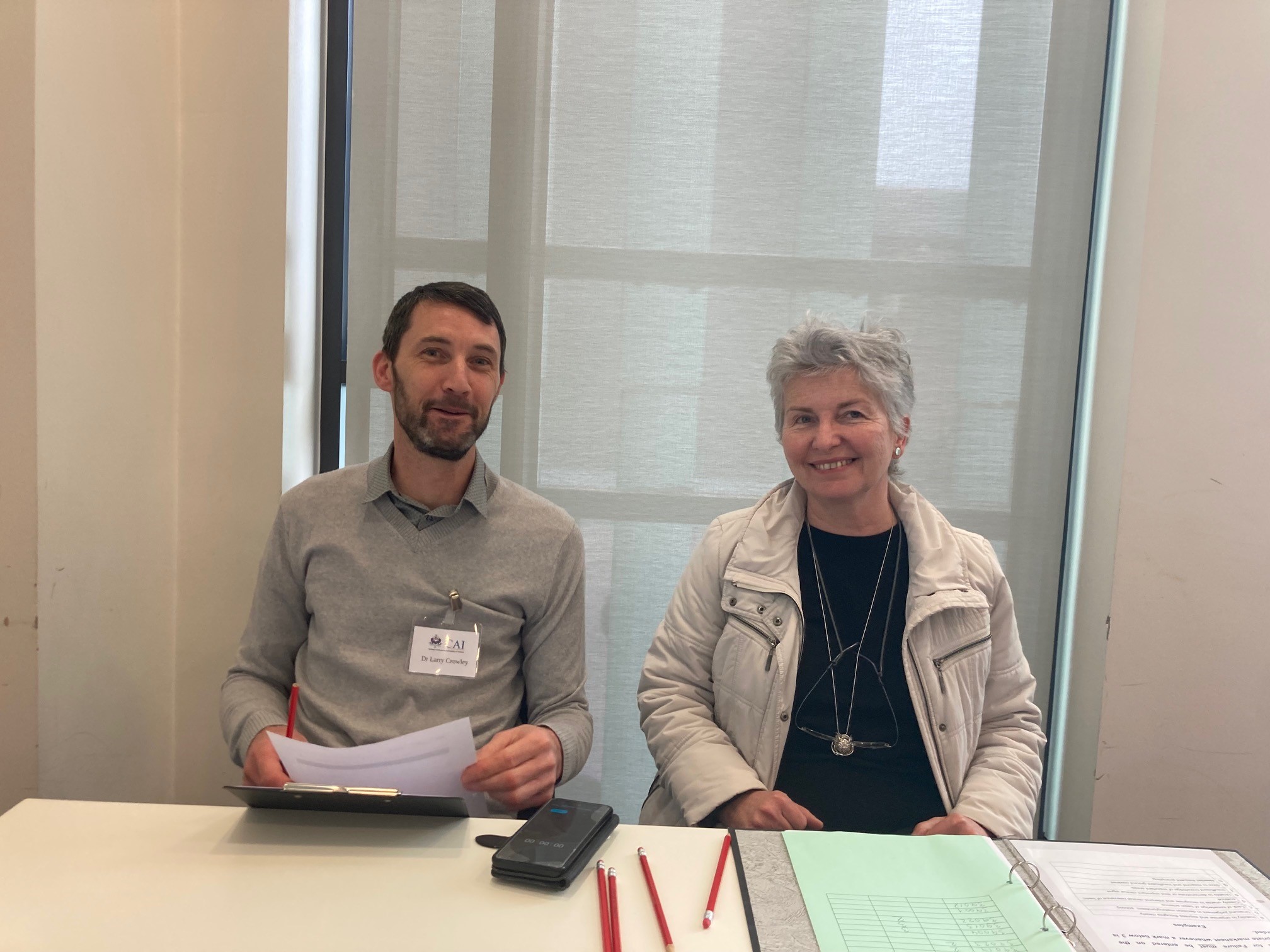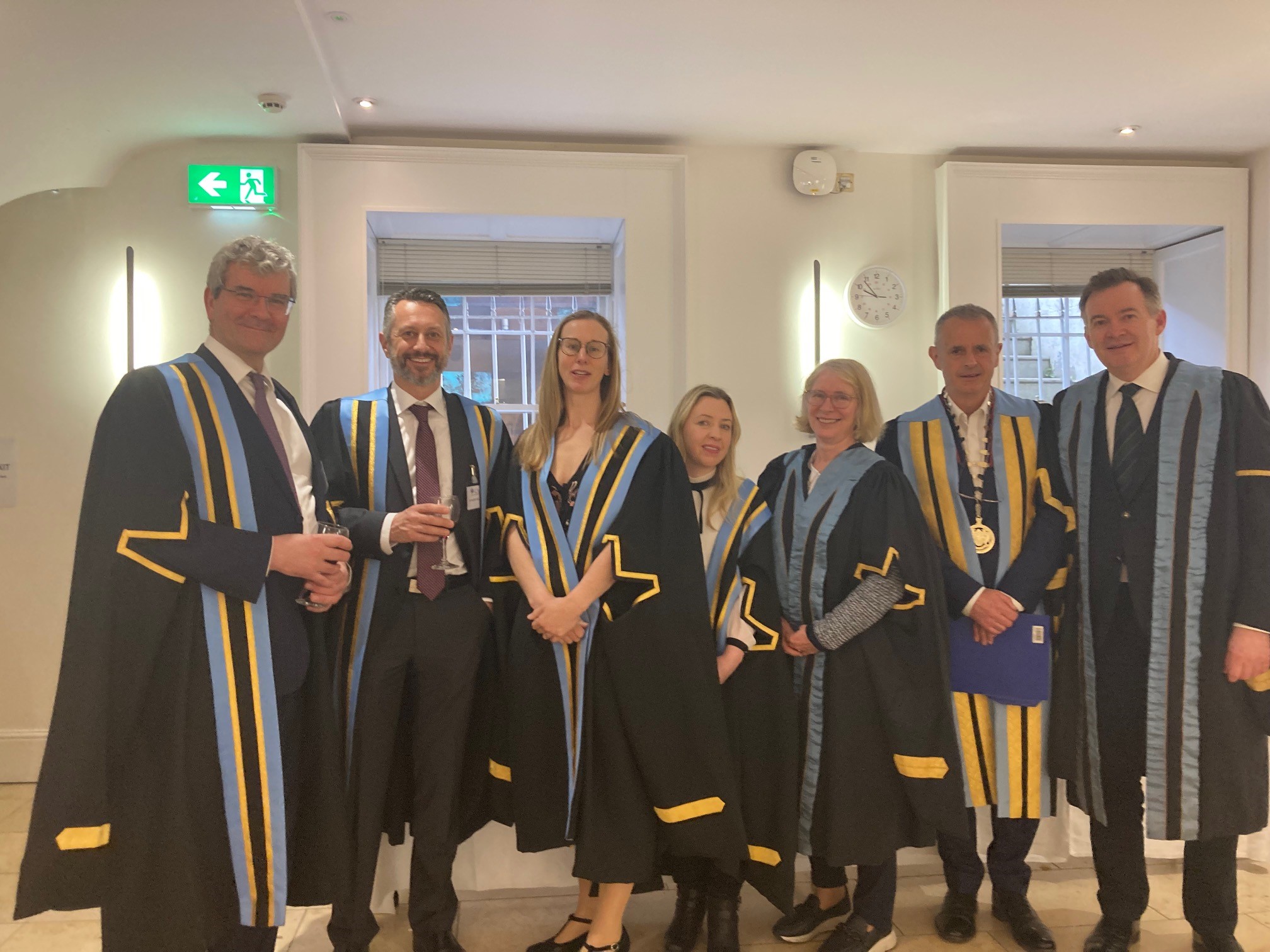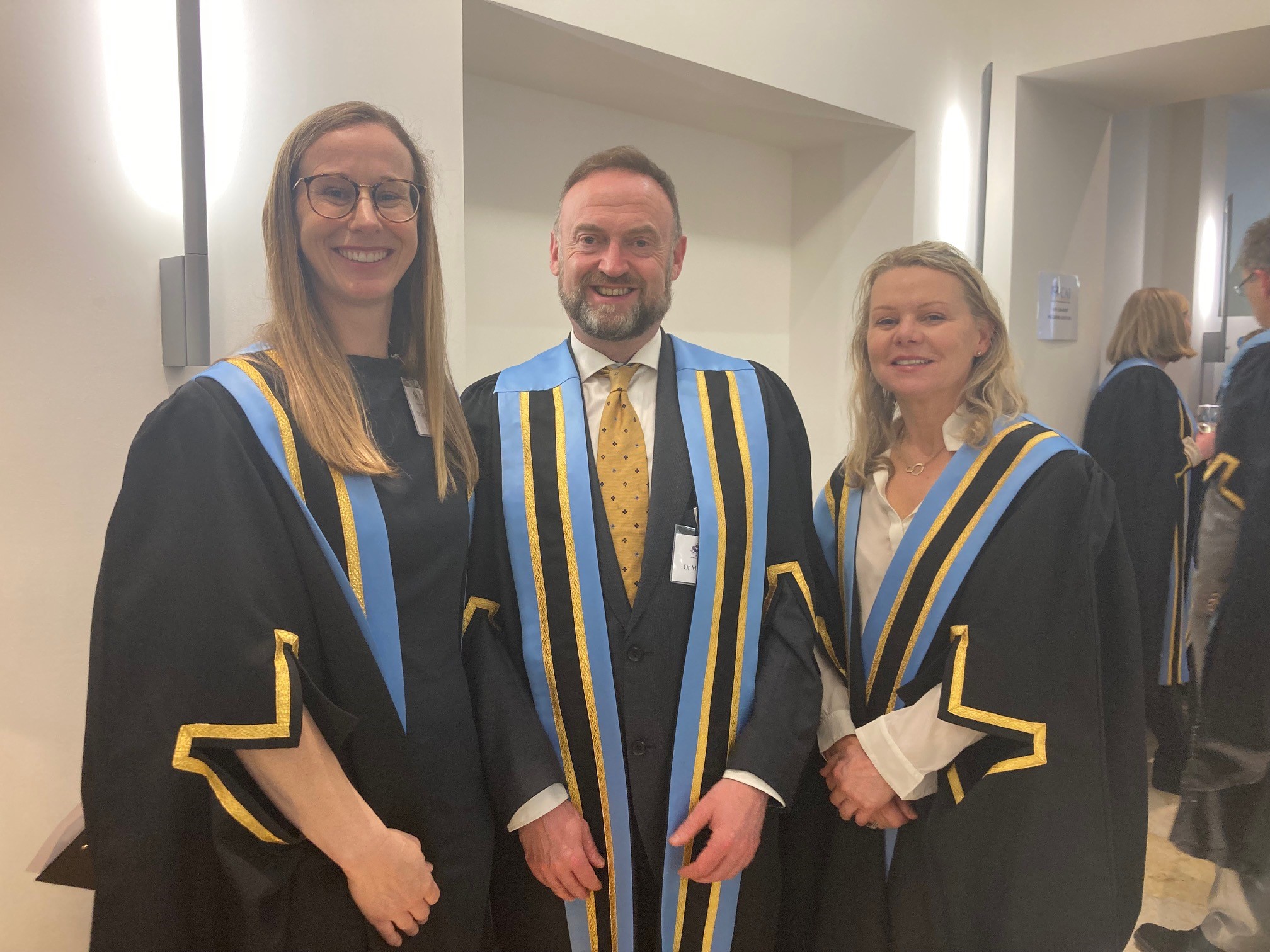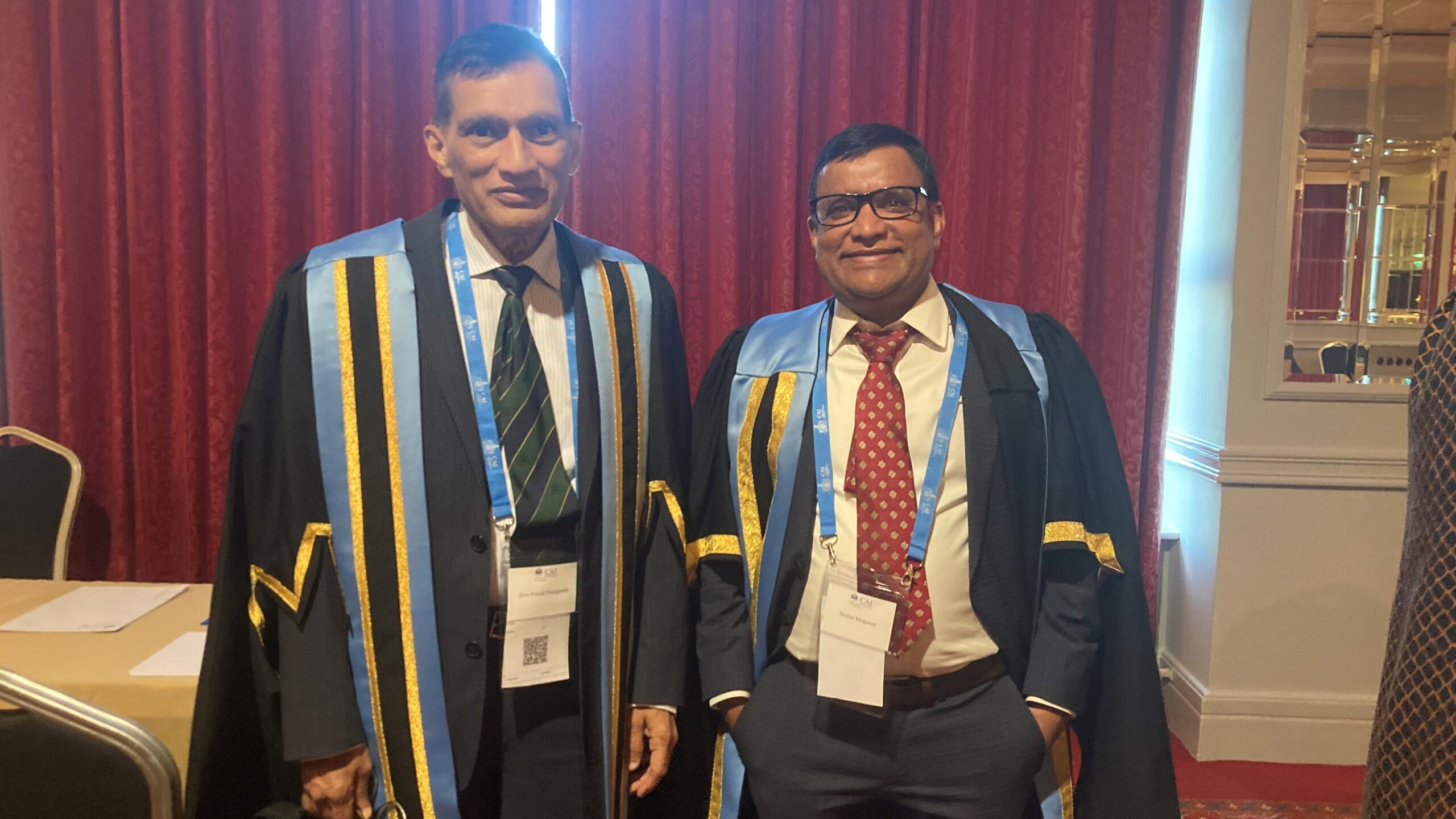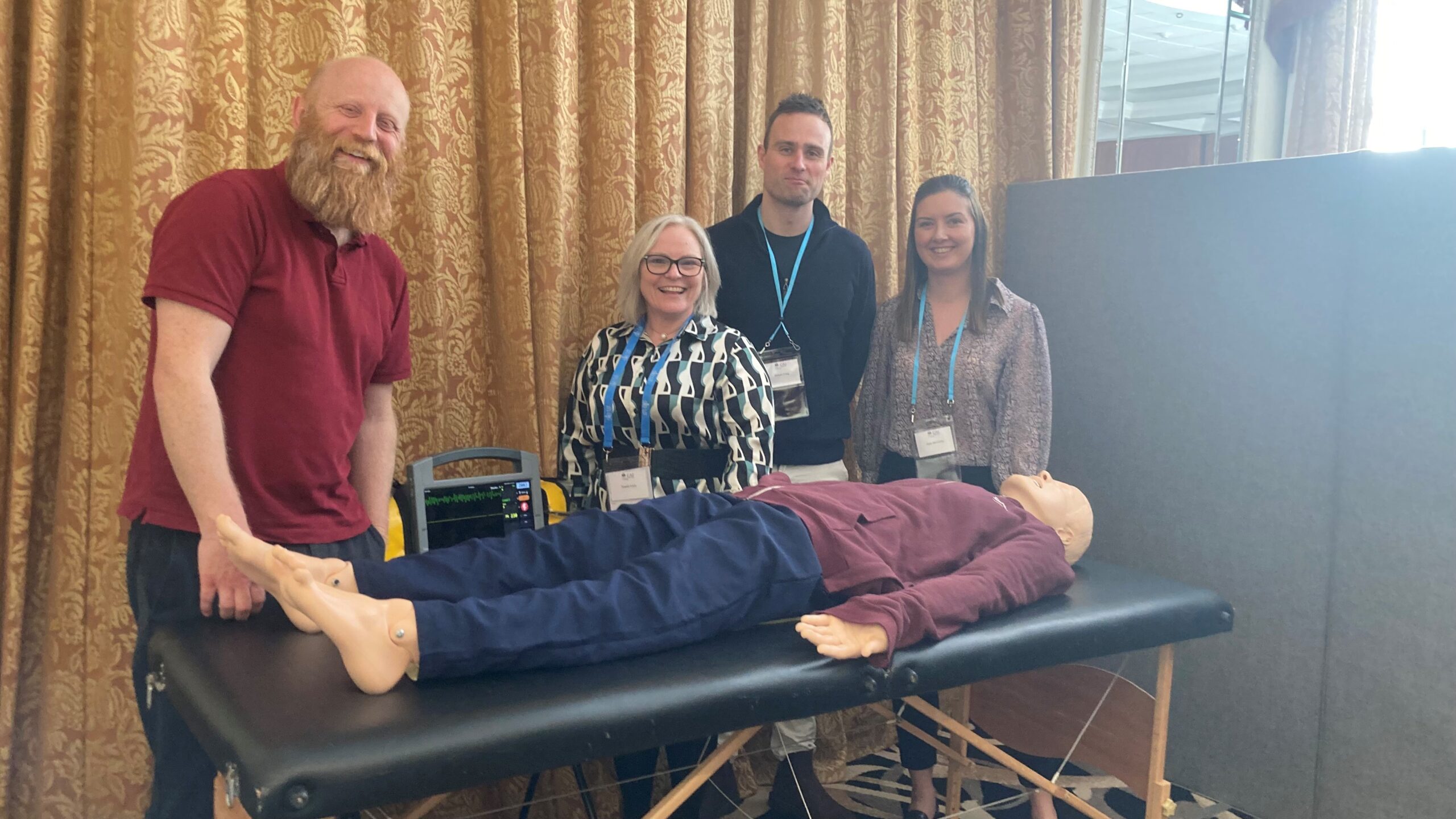Be an Examiner
Being a CAI examiner offers a unique opportunity for both clinical and non-clinical professional development which will significantly enhance one’s role as a clinician. Through the examinations process clinicians stay updated with current standards and knowledge in Anaesthesia and Anaesthetic training.
The social aspect of being a CAI examiner plays a crucial role in fostering strong working relations, encouraging collaboration, knowledge sharing and mutual support.
- Contribution to the development of future of Anaesthesiology Training in Ireland
- Personal Development
- Social Interaction
- Professional Recognition
- All examiner activities are CPD approved.
- Contribution to the development of future of Anaesthesiology Training in Ireland
- Personal Development
- Social Interaction
- Professional Recognition
Role of the Examiner
- An examiner should committee to examining a miniumum of two days a year to maintain their Examiner status.
- Contribute to question banks and standard setting meetings.
- Should be familiar with the examination syllabus, curriculum, marking schemes and regulations.

Examinations Committee, Chairperson
Dr Michelle Duggan, Mayo University Hospital
Dr Michelle Duggan is a Consultant Anaesthesiologist at Mayo University Hospital and has been an examiner with the College for over 10 years. Her roles in the exams department include lead for MCAI MTF questions, Chair of the Membership Exam and she is currently Chair of Examinations Committee. She is a Personal Professor at the University of Galway and the Dean of Medical Education at the Mayo Medical Academy.
Membership Examinations Chairperson & Leads
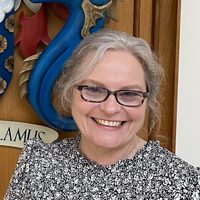
MCAI Examinations, Chairperson
Dr Niamh Feely, University Hospital Kerry

MCAI Lead MCAI MTF paper
Dr Peter Hooker, Nenagh Hospital

MCAI SBA Examinations Lead
Dr Pierce Geoghegan, Beaumont Hospital
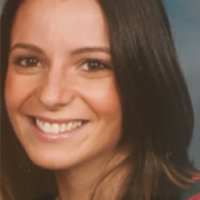
MCAI OSCE Examinations Lead
Dr Sinead Egan, Mayo University Hospital
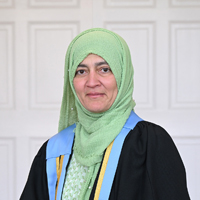
MCAI Pharmacology SOE Examinations Lead
Dr Fauzia Bano, Our Lady of Lourdes Hospital, Drogheda

MCAI Physiology SOE Examinations Lead
Dr David Devlin, Beaumont Hospital
Fellowship Examinations Chairperson & Leads

FCAI Examinations, Chairperson
Dr Fidelma Kirby, Children’s University Hospital, Temple Street, Dublin

FCAI SBA Lead
Dr Martina Melvin, Mayo University Hospital

FCAI SAQ Lead
Dr Fidelma Kirby

FCAI SOE 1 Lead
Dr Amy Donnelly, St Vincent’s Hospital
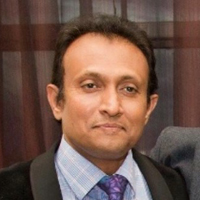
FCAI SOE 2 Lead
Dr Jubil Thomas, Our Lady of Lourdes Hospital, Drogheda

FCAI SOE 3 Lead
Dr Ruth Aoibheann O’Leary, Beaumont Hospital

Chairperson Intensive Care Medicine Examinations
Dr Donal Ryan, St Vincent’s Hospital
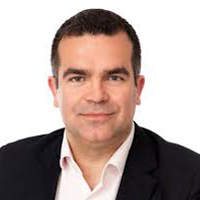
Chairperson Pain Medicine Examinations
Dr David Moore, Beaumont Hospital
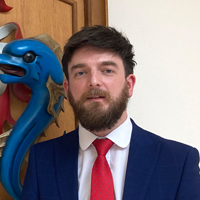
Director of Quality Assurance
Dr Gareth Morrison Northern Health and Social Care Trust, Belfast

Dr Ghulam Raza, Consultant Anaesthesiologist
South Tipperary University Hospital
I aspire to become an examiner as it presents an exceptional opportunity for professional development, allowing me to enhance my current role while significantly contributing to my future career progression. This position will enable me to stay abreast of the latest advancements in my field, ensuring that my knowledge remains current and relevant. Furthermore, I view this role as a meaningful way to give back to the College of Anesthesiologists and to my country, fostering the growth of future professionals in anesthesiology.

Dr Martina Melvin, Consultant Anaesthesiologist
Mayo University Hospital
I decided to become an examiner as it is a great opportunity once you become a consultant to be involved with the college of anaesthesiologists . It keeps you engaged with anaesthesia training which is very important at a local hospital level also . Lastly , of course the social aspect is also appealing in which you get to meet up with colleagues from around the country every year.
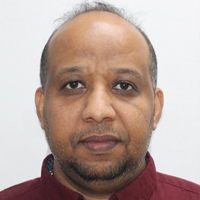
Dr Mohamed Ahmed, Consultant Anaesthesiologist
Our Lady of Lourdes Hospital, Drogheda
Being a membership examiner is certainly a rewarding professional experience. I am utterly privileged of contributing to the development of competent anaesthesiologists of the future.

Dr Niamh Feely, Consultant Anaesthesiologist
University Hospital Kerry
I’ve been involved in pre-clinical and clinical Medical Education, including exams, since 1995 and having recently moved from my role as Clinical Lead For Simulation, I am looking forward to my next role in the College as the Membership examinations Chair.

Dr Vikash Singh, Consultant Anaesthesiologist
Our Lady of Lourdes Hospital, Drogheda
I become examiner due to two important reasons ; to be a part of good standard examination system and get an examination insight.
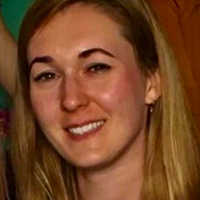
Dr Ciana McCarthy, Consultant Anaesthesiologist
Beaumont Hospital
I enjoy teaching and have an interest in education plus it keeps my knowledge up to date!
Eligibility
All examiners must be registered on the Specialist Division of the Register for Anaesthesiology with the IMC. Be In Good Standing with the College and fully compliant with the Professional Competence Scheme. Applicants must be employed with a permanent consultant contract.
Application process
- Submit your application from with your current CV.
- Candidate applications are reviewed and approved by the Examinations Committee and the College Council.
- Submit your application and CV to examiner@coa.ie
Introduction
Applications are considered each year to fill vacancies on the MCAI & FCAI Examiner Boards.
Applications are considered with regard to the profile of the Examiner boards e.g. examiners with special interests relevant to the examinations, balance between clinical and basic science examiners, and representation of teaching hospitals. Examiners can be currently working in public or private hospitals as long as they have contact with Trainees.
Selection is carried out in a non-discriminatory manner in line with the College’s Employment Equality and Diversity Policy.
CAI Board of Examiners
All College Examiners will sit on the newly established Board of Examiners. This will be overseen by an Executive Board, comprising the Chairpersons and Examination Leads of the different components of the examinations.
Appointment to the Board of Examiners
- To be eligible for nomination as an Examiner, a doctor must meet the following criteria:
- Hold the Fellowship of the College of Anaesthesiologists of Ireland
- Be in ‘Good Standing’ with the CAI
- Be registered on the Specialist Division of the Register for Anaesthesiology with the Medical Council of Ireland or equivalent body
- Be registered on and compliant with a Medical Council accredited Professional Competence Scheme
- Be employed as a permanent consultant
- Applications are received by the Examinations Manager and nominations tabled for the next meeting of the Examinations Committee.
- The Examinations Committee reserves the right of approval of Examiner appointments.
- Examiner appointments are ratified by the Council of the College.
- Agree to undertake the requirements of the Probation Period.
Duties of Examiners
- Fully committed to the examination process.
- Examiners should be familiar with the examination syllabus, curriculum, marking schemes and regulations.
- Examiners should commit to the examination process two days a year. This can include question writing, marking, paper setting, standard setting, face to face examining or committee attendance annually to maintain their Examiner status.
- Examiners must attend an Examiner training day on appointment followed by subsequent training every 3 years.
- Examiners are required to contribute to the examination question banks and mark script when required.
Rules of Examining
Probation Period
The first year as an Examiner is considered probationary; the CAI Examiner Auditor will assess each examiners performance and recommend to the Examinations Committee that the Examiner be – confirmed in their appointment or
- continue as a probationer for a specified period or
- not be confirmed in their appointment.
In order to successfully complete this probation period examiners must complete the following criteria:
- Equality & Diversity Training Module
- Observed and Audited before Examining unsupervised
- Examiner Training Day
- Commit to one exam preparation course
- Commit to the examination process two days a year. This can include question writing, marking, paper setting, standard setting, face to face examining or committee attendance
- Submit questions for the question bank
Audit Process
- During their probation period, Examiners must participate in the audit process. Before examining unsupervised, Examiners must first be observed and assessed by a CAI Examiner Auditor.
Appointment tenure
- Examiner appointment is for a period of 10 years. The Chairperson of Examinations can request an Examiner to extend their appointment by agreement with the Chairperson.
Professionalism
- Examiners must take care to avoid any conflict of interest in teaching candidates and if possible avoid examining candidates that are currently working in their departments.
- Examiners must observe the guidelines of the Examiner Etiquette Handbook.
- Attend Pre Exam and Call Over Meetings on the day of exams.
- Timely attendance on the day of the exam.
Training
Examiners must attend an Examiner training day on appointment followed by subsequent training every 3 years.
Quality Assurance
- Examiners must continue to be in ‘Good Standing’ with the CAI.
- Be registered on and compliant with a Medical Council accredited Professional Competence Scheme

